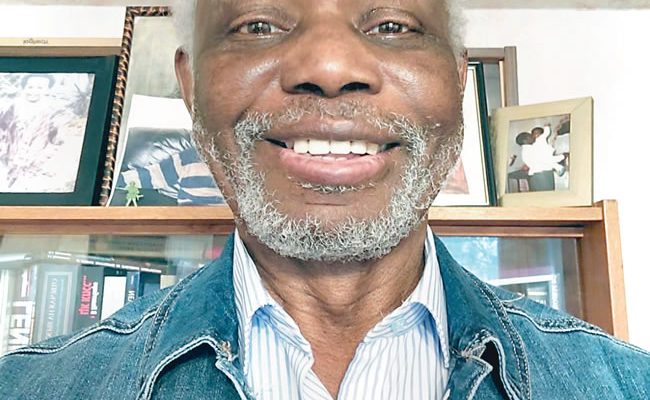

Professor Omajuwa Natufe, Chairman of the Movement for National Reform (MNR) Constitution Review Committee, advocates for Nigeria’s return to regional government. The octogenarian, a former political science professor at the University of Ghana (1978-1980) and University of Benin (1980-1989), is also a specialist in international relations and Soviet foreign policy. Nigerian-born Sovietologist, Natufe, discusses the National Assembly’s planned constitutional review and the MNR’s push for regional governance in a conversation with ISAAC SHOBAYO. Excerpt:
SIR, your group, the Movement for National Reform (MNR), is advocating a return to regional government. What informs this position and what does the country stand to gain from this?

As you are well aware, since its inception in 1992, MNR has been a leading advocate of good governance and true federalism in Nigeria. In their wisdom, our founding fathers subscribed to the global practice that federating units define the form and content of a federation in a way that the former demonstrate their respective unique and distinctive characteristics as independent entities. This implies that the federating units decide on the powers to concede to the central (federal) government for the smooth running of the country’s affairs. This construct is built on the truism that there is a federation, because the federating units agree to federate. Agreeing to federate does not imply the extinguishment of the core elements of their sovereignty. MNR’s advocacy for a return to regional government means the restoration of the 1963 Constitution of the Federal Republic of Nigeria, where the federating units, then referred to as regions, exercised defined powers congruent to the tenets of federalism. This is referred to as regionalism, which recognises the power and self-determination of federating units in a federal polity, especially in a multi-ethnic, multi-cultural, and multi-religious polity like Nigeria. This core principle explains the resilience of federalism in Canada, the USA, India, and Switzerland, for instance. Nigerians benefited from this concept of regionalism until the military intruded into civil governance and politics in Nigeria. It is the view of MNR that to discard regionalism and pretend to construct a federal polity is tantamount to extinguishing the rights of federating units and indigenous ethnic nationalities in a multi-ethnic country like Nigeria. This tenet is the core characteristic of a federal political system, as we witness in the USA, Canada, India, and Switzerland, and it defined federalism in Nigeria prior to the military intrusion in civil governance and politics on January 15, 1966. It should be stressed that the military regime suspended the 1963 constitution of Federal Republic of Nigeria and transformed Nigeria into a unitary state. Note that the 1963 constitution of Federal Republic of Nigeria was never abrogated. Prior to January 15, 1966, each federating unit developed at its own pace and exercised exclusive jurisdiction in critical areas of the economy and natural resources.
Under the current 1999 Constitution (as amended), that is inaccurately referred to as a federal constitution, the federating units known as states are mere administrative branches of the central government. This is exemplified by the monthly trip by the state governments to Abuja to collect stipends from the central government. This is not federalism but a unitary system. A return to regionalism will benefit Nigeria and Nigerians, as the federating units will begin to exercise their proper role in all aspects of governance, including security, the police, the economy, etc.
The agitation for regional government seems to be gathering momentum, but to the surprise of many Nigerians, the Senate Committee on Constitutional Review during its retreat in Kano State last week said there was no such proposal before it. Don’t you see this as a setback to your agitation?
Like most Nigerians, we monitored the deliberations of the Senate Committee on Constitutional Review at its retreat in Kano last week. We also observed in the report that the senators claimed not to have received any proposal for the return of regionalism. In our submission to the Senate Committee on Constitution Review on August 29, 2024, entitled RE: “CALL FOR MEMORANDA AND PROPOSALS: CONSTITUTIONAL AMENDMENT,” we advised the Senate Committee to restore the 1963 CFRN as the only federal constitution in Nigeria. A demand for the restoration of the 1963 CFRN as contained in the aforementioned MNR’s Memorandum of August 29, 2024 is, by definition, a proposal for the return of regionalism, which is the critical element of the 1963 CFRN. Thus, it is incongruous of the Senate Committee on Constitutional Review to claim that “there was no such proposal before it.” So, we do not consider this claim to be a setback to MNR’s position.
The assumption in some quarters is that the change from regions to states marks the end of federalism, while it is equally believed by others that a return to regionalism is an equal return to true federalism. What is your opinion on this?
It is vital that we have conceptual clarity on federating units. A change from regions to states does not mark the end of federalism, as you alleged. In Nigeria prior to January 15, 1966, the federating units were referred to as regions, which the military regime changed to states in 1967. Thus, federating units can either be regions or states (as in the USA and Nigeria) or provinces (as in Canada) or cantons (as in Switzerland). It is the view of MNR that a return to regionalism is a return to true federalism, irrespective of what we elect to call the federating units.
Sir, the 2014 Constitutional Conference made over 600 recommendations for the improvement of political, economic, and social structures with suggestions; don’t you think that the implementation of this report should be of paramount importance to the present administration?
With due respect to the framers of the Report of the 2014 National Conference, the document is too unwieldy to be implemented via a stroke of the pen. This is not to disregard some important elements of the 2014 National Conference. Its implementation will require a re-writing of a new constitution, which we consider unnecessary and wasteful of scarce resources. Hence we consider it of paramount importance for the President Bola Ahmed Tinubu-led administration to lift the suspension on the 1963 CFRN via an Executive Bill, which we have submitted to him for his review and consideration. Once restored, the 1963 CFRN can be amended to suit current realities by, for example, replacing regions with states and the then four regions with thirty-six states. Further amendments can be made to restructure the federating units into homogeneous states and heterogeneous states. The creation of homogeneous federating states for the 20 most populous ethnic nationalities that have contiguous boundaries, respectively. These federating units will be homogeneous ethnic-based states for the Hausa, Yoruba, Igbo, Ijaw, Kanuri, Ibibio, Okpe, Tiv, etc. This will be complemented with the establishment of a maximum of 30 heterogeneous (multi-ethnic) federating states for the other ethnic nationalities. For example, the heterogeneous ethnic nationalities in the Middle Belt and the South-South can agree, via referenda, to merge and constitute federating units. An ethnic nationality occupying a defined contiguous boundary in a heterogeneous state shall constitute an autonomous region with due constitutional jurisdictions. It shall also have concurrent jurisdiction with the heterogeneous state over natural resources discovered in its territory but shall exercise exclusive jurisdiction over primary and secondary education, culture, language, and traditional institutions, etc.
A Charter of Rights and Freedoms protecting minority rights will anchor this restructured federalism.
The president was your contemporary in the struggle for a better Nigeria in NADECO; he is in the saddle today as the president of the Federal Republic of Nigeria. If you see him, what advice will you give him concerning bad governance and hardships in the country?
The founding chairman of MNR, Chief Anthony Enahoro (of Blessed Memory), and President Bola Ahmed Tinubu were two of the pivotal voices in NADECO in the dark days of military dictatorship in Nigeria. They had a very robust relationship and shared identical views on good governance and true federalism. We have drawn President Tinubu’s attention to the political bond he shared with the MNR in our draft Executive Bill for his review and consideration. Should I see him, I will remind him of the shared ideological bonds between him and the MNR and encourage him to do more than his government is currently doing to instill good governance and alleviate the hardship currently in the country. I will advise him to approve the draft Executive Bill and present it to the National Assembly for prompt action, just as he did with the restoration of the old National Anthem. By restoring the 1963 CFRN, the President will be injecting new life into the community of nations that constitutes the Federal Republic of Nigeria. I will advise that a supposedly federal political system that negates the basic principle of federalism and cruises on a unitary order cannot claim to be federalism-compliant. I will stress that a unitary order in a supposedly federal political system is incongruous to good governance and that a federal political system cannot be a prison of nationalities. The demise of the Soviet Union, Czechoslovakia, and Yugoslavia provide vivid consequences of the denial of regionalism in their respective “federal” political systems. Furthermore, I will draw his attention to the emerging congruence between the “North” and the “South” on the issue of restructuring via regionalism and the restoration of the 1963 CFRN. By endorsing MNR’s draft Executive Bill and restoring the 1963 CFRN, President Tinubu will bequeath Nigeria a lasting legacy. His name will go down in history as the president who restored good governance and true federalism in Nigeria.
READ ALSO: Fuel hike: Tinubu’s govt insensitive to Nigerians’ plight — Obi








